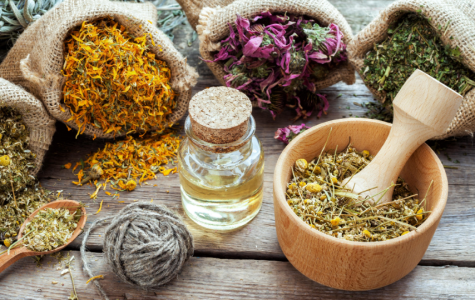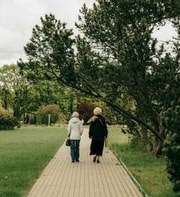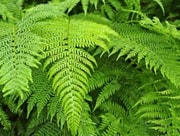Daily supplements pose hidden organ risks, warns top doctor
By
Gian T
- Replies 0
For many Australians, popping a daily supplement or two has become as routine as a morning cuppa.
Whether it’s a multivitamin, a herbal remedy for sleep, or a trendy 'superfood' capsule promising boundless energy, the supplement industry is booming—especially among over-60s looking to boost their health and wellbeing.
But could some of these so-called 'natural' products be doing more harm than good?
A leading NHS surgeon, Dr Karan Rajan, has sounded the alarm on social media, warning that certain popular supplements could cause serious, even life-threatening, liver damage.
'They turn your liver into a science project gone wrong,' he cautioned, urging the public to be vigilant about what they’re putting into their bodies.
It’s easy to assume that something labelled 'natural' or 'herbal' must be safe.
But as Dr Rajan points out, the liver processes many of these substances, which act as the body’s main detoxification centre.
When overloaded, the liver can become inflamed or even fail—a risk often overlooked.
Several supplements have come under scrutiny for potential links to liver damage, including ashwagandha—an ancient herb praised for boosting energy and immunity but recently flagged by the UK’s Food Standards Agency after reports of liver injury.
While safe in beverage form, green tea extract may be harmful in concentrated supplement doses.
Turmeric, commonly used for its anti-inflammatory effects, has been tied to rare instances of liver failure, and black cohosh, often used to ease menopausal symptoms, has been associated with severe liver damage, including a near-transplant case after only two months of use.
The liver breaks down and processes everything we ingest—including medications and supplements. Even 'natural' compounds can interact with liver enzymes, sometimes in unpredictable ways.
Dr Rajan explains: 'Even the natural ones involve liver metabolism, meaning they go through the liver’s biochemical sorting hat and get processed by liver enzymes.
This can affect how hard your liver is working.'
Taking multiple supplements at once can be especially risky, as their active ingredients may interact with each other or with prescription medications, creating a 'pharmacological cocktail with unknown synergy.'
Many over-60s take prescription medications for chronic conditions such as high cholesterol, high blood pressure, or depression.
Dr Rajan warns that supplements can make these drugs more potent or less effective or trigger unexpected side effects.
Statins, blood thinners, anti-epileptics, and antidepressants are just a few examples of medications that can interact dangerously with certain supplements.
The NHS also cautions that herbal supplements can make other medicines trigger unexpected side effects, so it’s crucial to check with your doctor or pharmacist before starting anything new.
If you're thinking about adding a supplement to your routine—or already take some regularly—there are a few key steps to help protect your health.
First, check for possible interactions by speaking with your GP or pharmacist, especially if you're on prescription medication.
Use trusted resources like LiverTox, which tracks liver-related risks linked to supplements; if your supplement falls under grades A, B, or C, be particularly mindful of dosage and frequency.
Opt for products with third-party certification (such as NSF, Informed Choice, or USP Verified) to ensure safety and quality.
Be cautious of overlapping ingredients in different supplements, as doubling up can increase the risk of side effects or overdose.
Finally, stay alert for warning signs like jaundice, dark urine, or persistent fatigue—these could indicate liver issues and require prompt medical attention.
Despite their popularity, the evidence for most supplements is surprisingly weak.
A major study published in the Journal of the American College of Cardiology found that common supplements—like multivitamins, vitamin D, calcium, and vitamin C—did not affect the risk of heart disease, stroke, or early death.
Dr Rajan admits to taking a few supplements, such as omega-3, vitamin D, and fibre, but stresses that not all supplements are 'evil'—the key is to use them wisely and with medical guidance.
The risks aren’t just theoretical. There have been real cases of Australians and others around the world suffering severe liver damage after taking herbal supplements.
One mother of four developed jaundice and was hospitalised after taking black cohosh for menopause symptoms.
She was told she might need a liver transplant—a sobering reminder that 'natural' doesn’t always mean 'safe'.
As we age, our bodies become more sensitive to medications and supplements.
What worked for us in our 30s or 40s may not be safe now.
The best approach is to focus on a balanced diet and regular exercise and only use supplements when recommended by a healthcare professional.
Credit: Instagram

Have you had a positive or negative experience with supplements? Do you take any daily, or have you ever had a reaction? Share your stories and tips in the comments below—your experience could help others in the Seniors Discount Club community make safer choices.
Whether it’s a multivitamin, a herbal remedy for sleep, or a trendy 'superfood' capsule promising boundless energy, the supplement industry is booming—especially among over-60s looking to boost their health and wellbeing.
But could some of these so-called 'natural' products be doing more harm than good?
A leading NHS surgeon, Dr Karan Rajan, has sounded the alarm on social media, warning that certain popular supplements could cause serious, even life-threatening, liver damage.
'They turn your liver into a science project gone wrong,' he cautioned, urging the public to be vigilant about what they’re putting into their bodies.
It’s easy to assume that something labelled 'natural' or 'herbal' must be safe.
But as Dr Rajan points out, the liver processes many of these substances, which act as the body’s main detoxification centre.
When overloaded, the liver can become inflamed or even fail—a risk often overlooked.
Several supplements have come under scrutiny for potential links to liver damage, including ashwagandha—an ancient herb praised for boosting energy and immunity but recently flagged by the UK’s Food Standards Agency after reports of liver injury.
While safe in beverage form, green tea extract may be harmful in concentrated supplement doses.
Turmeric, commonly used for its anti-inflammatory effects, has been tied to rare instances of liver failure, and black cohosh, often used to ease menopausal symptoms, has been associated with severe liver damage, including a near-transplant case after only two months of use.
The liver breaks down and processes everything we ingest—including medications and supplements. Even 'natural' compounds can interact with liver enzymes, sometimes in unpredictable ways.
Dr Rajan explains: 'Even the natural ones involve liver metabolism, meaning they go through the liver’s biochemical sorting hat and get processed by liver enzymes.
This can affect how hard your liver is working.'
Taking multiple supplements at once can be especially risky, as their active ingredients may interact with each other or with prescription medications, creating a 'pharmacological cocktail with unknown synergy.'
Many over-60s take prescription medications for chronic conditions such as high cholesterol, high blood pressure, or depression.
Statins, blood thinners, anti-epileptics, and antidepressants are just a few examples of medications that can interact dangerously with certain supplements.
The NHS also cautions that herbal supplements can make other medicines trigger unexpected side effects, so it’s crucial to check with your doctor or pharmacist before starting anything new.
If you're thinking about adding a supplement to your routine—or already take some regularly—there are a few key steps to help protect your health.
First, check for possible interactions by speaking with your GP or pharmacist, especially if you're on prescription medication.
Use trusted resources like LiverTox, which tracks liver-related risks linked to supplements; if your supplement falls under grades A, B, or C, be particularly mindful of dosage and frequency.
Be cautious of overlapping ingredients in different supplements, as doubling up can increase the risk of side effects or overdose.
Finally, stay alert for warning signs like jaundice, dark urine, or persistent fatigue—these could indicate liver issues and require prompt medical attention.
Despite their popularity, the evidence for most supplements is surprisingly weak.
A major study published in the Journal of the American College of Cardiology found that common supplements—like multivitamins, vitamin D, calcium, and vitamin C—did not affect the risk of heart disease, stroke, or early death.
Dr Rajan admits to taking a few supplements, such as omega-3, vitamin D, and fibre, but stresses that not all supplements are 'evil'—the key is to use them wisely and with medical guidance.
The risks aren’t just theoretical. There have been real cases of Australians and others around the world suffering severe liver damage after taking herbal supplements.
One mother of four developed jaundice and was hospitalised after taking black cohosh for menopause symptoms.
She was told she might need a liver transplant—a sobering reminder that 'natural' doesn’t always mean 'safe'.
As we age, our bodies become more sensitive to medications and supplements.
What worked for us in our 30s or 40s may not be safe now.
The best approach is to focus on a balanced diet and regular exercise and only use supplements when recommended by a healthcare professional.
Credit: Instagram
Key Takeaways
- Certain popular herbal supplements—such as ashwagandha, green tea extract and turmeric—have been linked to potentially life-threatening liver damage.
- Dr Karan Rajan, NHS surgeon, urges people to check supplements on the LiverTox database and to be cautious with doses, especially when taking multiple supplements, due to possible dangerous interactions.
- Mixing supplements with prescription drugs, like statins and antidepressants, can create harmful or unexpected effects, so it’s important to consult a doctor or pharmacist about potential interactions.
- While not all supplements are harmful, studies show most common ones offer little proven benefit; seeking products with third-party safety certification and professional medical advice is recommended.








